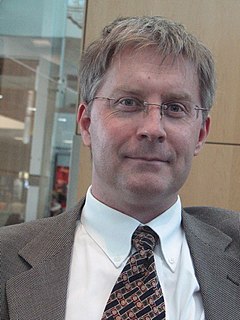A Quote by Fred Hoyle
Hoyle's enduring insights into stars, nucleosynthesis, and the large-scale universe rank among the greatest achievements of 20th-century astrophysics. Moreover, his theories were unfailingly stimulating, even when they proved transient.
Related Quotes
D-Day represents the greatest achievement of the american people and system in the 20th century. It was the pivot point of the 20th century. It was the day on which the decision was made as to who was going to rule in this world in the second half of the 20th century. Is it going to be Nazism, is it going to be communism, or are the democracies going to prevail?
I was really interested in 20th century communalism and alternative communities, the boom of communes in the 60s and 70s. That led me back to the 19th century. I was shocked to find what I would describe as far more utopian ideas in the 19th century than in the 20th century. Not only were the ideas so extreme, but surprising people were adopting them.
I went to the librarian and asked for a book about stars.... And the answer was stunning. It was that the Sun was a star but really close. The stars were suns, but so far away they were just little points of light.... The scale of the universe suddenly opened up to me. It was a kind of religious experience. There was a magnificence to it, a grandeur, a scale which has never left me. Never ever left me.
If you look at that incredible burst of fantastic characters that emerged in the late 19th century/early 20th century, you can see so many of the fears and hopes of those times embedded in those characters. Even in throwaway bits of contemporary culture you can often find some penetrating insights into the real world around us.
In the popular mind, if Hoyle is remembered it is as the prime mover of the discredited Steady State theory of the universe. "Everybody knows" that the rival Big Bang theory won the battle of the cosmologies, but few (not even astronomers) appreciate that the mathematical formalism of the now-favoured version of Big Bang, called inflation, is identical to Hoyle's version of the Steady State model.
A dining club which I was involved in at Oxford University invited Sir Isaiah Berlin to dinner, who I believe was probably the greatest liberal philosopher in the 20th century. I sat beside him and we spoke about liberal philosophy and the events of the 20th century all night over dinner - it was unforgettable!
Even if we never reach the stars by our own efforts, in the millions of years that lie ahead it is almost certain that the stars will come to us. Isolationism is neither a practical policy on the national or cosmic scale. And when the first contact with the outer universe is made, one would like to think that Mankind played an active and not merely a passive role-that we were the discoverers, not the discovered.



































